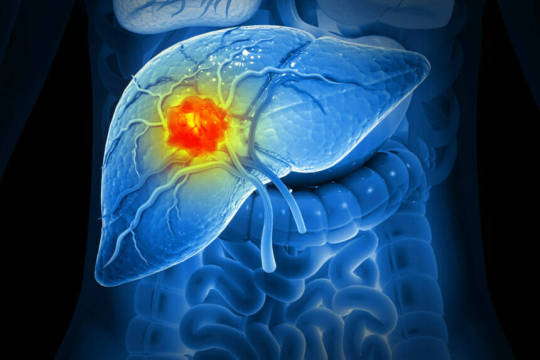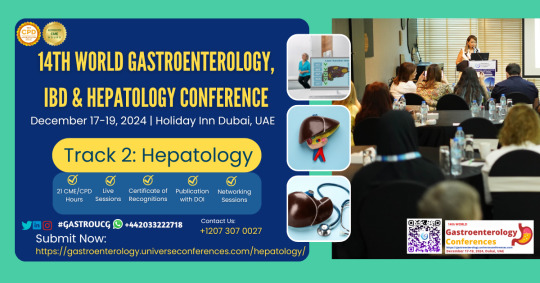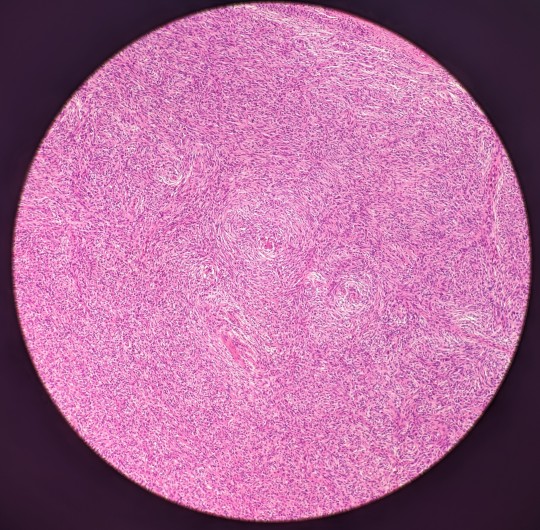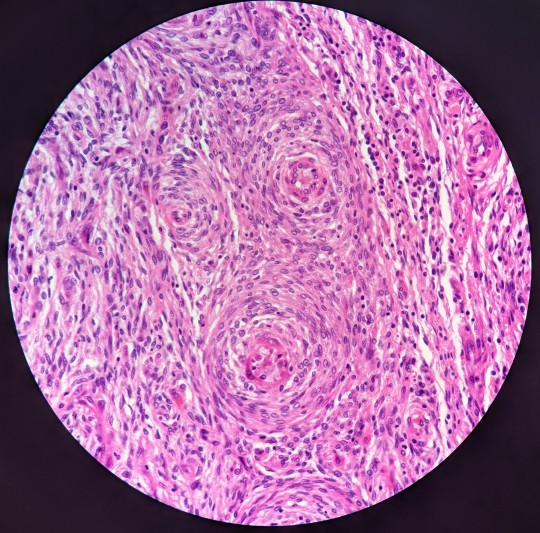#hepatocellular carcinoma
Explore tagged Tumblr posts
Text
youtube
#Traditional Chinese Medicine#Hepatocellular Carcinoma#TCM Research#Liver Cancer Treatment#Herbal Medicine#Acupuncture Therapy#Integrative Oncology#Cancer Bibliometrics#Oncology Trends#Liver Health#Alternative Medicine#Cancer Prevention#TCM Herbs#Medical Bibliometrics#Cancer Research#HCC Survival#TCMTherapy#Liver Cancer Research#Traditional Medicine#Phytotherapy.#Youtube
0 notes
Text
Hepatocellular carcinoma(HCC) Risk Calculator
The REACH-B Score for Hepatocellular Carcinoma estimates risk of hepatocellular carcinoma in patients with chronic hepatitis B.
0 notes
Text
Role of Alpha Fetoprotein in hepatocellular carcinoma by MuhammadWaqar Mazhar in Journal of Clinical and Medical Images, Case Reports

Abstract
Hepatocellular carcinoma prevelance rate is higher in Pakistan due to HCV mortality rate, consumption of Alchol, and regular smoking, higher level of AFP progression normal liver cells into fatty liver cells, after inflammation it convert into HCC.In this study, we find the correlation between AFP and hepatocellular carcinoma. AFP involve in development of liver cancer, LFT’s test elevation and HCV also cause of cancer.
Keywords: Hepatocellular Carcinoma; Alpha Fetoprotein; alanine amino transferases; aspartate aminotransferases.
Introduction
Hepatocellular carcinoma is the 4th most common malignancy in worldwide and it is leading cause of cancer like disease in liver, and it exceed more than 1 million deaths per year by 2030 [1]. Acute hepatitis and acute liver failure are the most serious medical condition that require early diagnosis by release of IL-6, TNF-α and elevated alanine amino transferases, aspartate aminotransferases, alkaline phosphatase and α -Fetoprotein that progress healthy liver in to fatty liver known as steatosis and then inflammation occur in this and leads to hepatocellular carcinoma [2]. Most cases of HCC due to the virus like HCV and HBV, Diabetic and obesity, alcohol related diseases, non- alcohol related diseases, carcinogens like aflatoxins compounds [3]. HCC is the most common cancer that have high mortality rate in cancers due to mortality of HCV and NLFD. In Pakistan HCC ratio high due to prevalence and mortality rate of HCV [4]. The major treatment of HCC are chemotherapy, radiotherapy, transplantation and surgery. Because the most cases diagnose at the late stage, surgery cannot be performed and drugs are the only treatment of HCC [5]. Most patients in HCC become more drug resistance drug resistance. Drug treatment is the best choice of patients who are not edible for surgery. HCC is usually resistance to chemotherapeutic drugs. Because it hinders liver cancer treatment. In recent years targeted drugs use as medication and immune checkpoint inhibitors are introduce for treatment [6].
In the previous research evidence indicates that alpha-fetoprotein has high false-positive rate in diagnosis of early stage of HCC. The EASL clinic practices shows that AFP as a biomarker for liver transplantation and drug indicator [7]. The AFP level increased in many patients’ ad its risk for progression of HCC. AFP, currently the only biomarker available for HCC drug treatment, function as immune suppressor and promote malignancy transformation in HCC [8]. HCC is resistant to traditional chemotherapeutic agents such as doxorubicin, tetrahydrofolate, oxaliplatin, cisplatin, and gemcitabine. currently the recommended drugs include such as targeted therapeutics and immune checkpoint inhibitors [9].
AFP is a glycoprotein that secreted by endoderm embryonic tissue. The lower level of AFP in blood due to AFP is decrease in mature hepatocytes and that AFP gene expression is blocked. It is possible that AFP involved in HCC development and progression become an important factor affecting HCC diagnosis and treatment. AFP plays an important role in promoting cancer cell proliferation and, inhibition cancer cell apoptosis.
LFT’s test performed for liver injury, alanine aminotransferases, aspartate aminotransferases and alkaline phosphatase. These enzymes are commonly elevated in liver disease patients. Alkaline phosphatase and AFP play important role in the diagnosis of cancer.
Case Study
The patient name was sikandar, age 56 patient feel pain in their abdomen and sudden loss of weight. The patient has already hepatitis C infection and their PCR results were positive with high viral load. Due to serious illness it admitted in emergency ward 12, Nishter Hospital Multan. The doctors panel referred some test and kept in observations for better health condition.
The total bilirubin level was 2.05mg/dl in their blood and their normal values 0.6 - 1.2. The serum glutamate-pyruvate transaminase level is 43U/L and normal values up to 40. Aspartate amino transferases and alkaline phosphatase level were high in blood respectively 151 U/L and 493 U/l show in (Figure 1). Its indicate liver injury and cirrhosis. The AFP test indicates correlation with Hepatocellular carcinoma. The AFP level in patient was 6101ng/ml and normal values were 0.1 – 10. Higher level of AFP indicates that HCC have positive relation with AFP to proliferate cancer. The test formed by fully automated state of the Art analyzer Beckman Coulter 700 AIJ.

Figure 1: Liver function and Alpha Feto Protein test in patient.
After blood reports, doctor suggest ultarosund Computrised Tomography whole abdominal view. In view, spleen size becomes enlarged 6cm, calculi in gall bladder, heterogeneous patchy atrial enhancement of right lobe, and some nodules seen in both lobes of liver. The doctor findings the AFP correlation with HCC, splenomegaly, ascites, cholelithiasis and protosystematic collaterals.

Figure 2: Ultrasound Computrised Tomography whole abdomen.
The patient diagnosed with hepatocellular carcinoma at last stage, and doctor reffered to liver transplantation in india. But after 4 weeks he cannot survive.
Conclusion
Hepatitis C was the major risk of hepatocellular carcinoma in Pakistan. Smoking and alcohol have big problem to influence HCC in humans. The case study show that alpha fetoprotein has correlation with HCC. Higher Alkaline phosphatase and serum Bilirubin level enhance the liver carcinoma. AFP play role in cell proliferation, cancer cell differentiation and cell cycle arrest.
For more details : https://jcmimagescasereports.org/author-guidelines/
#Hepatocellular Carcinoma#Alpha Fetoprotein#alanine amino transferases#aspartate aminotransferases#malignancy#HCV#HCC#doxorubicin#tetrahydrofolate#oxaliplatin#Tomography#MuhammadWaqar Mazhar#JCMICR
0 notes
Text
Current Advancements in HCC Diagnosis & Treatment in South-East Asian Countries
Hepatocellular carcinoma, or HCC, the most common liver cancer type, is a significant public health concern in South-East Asian countries. Over the past few years, remarkable advancements have been made in HCC diagnosis and treatment, offering new hope to patients and healthcare providers. This blog discusses the current state of HCC diagnosis and treatment in South-East Asian countries, highlighting the latest technologies and approaches that have improved patient outcomes.
Read Full Blog here: https://www.grgonline.com/post/current-advancements-in-hcc-diagnosis-treatment-in-south-east-asian-countries
Advanced Diagnostic Techniques:
a. Liquid Biopsy:
Liquid biopsy has gained popularity as a promising non-invasive diagnostic tool for HCC detection in South-East Asia. By analyzing circulating tumor DNA and other biomarkers in blood samples, liquid biopsy enables early detection, monitoring of treatment response, and identifying potential relapse in HCC patients. Its convenience and accuracy make it valuable to traditional imaging and biopsy methods.
b. Imaging Advancements:
South-East Asian countries have embraced cutting-edge imaging technologies, such as contrast-enhanced ultrasound (CEUS) and dynamic contrast-enhanced magnetic resonance imaging (MRI). These techniques offer higher sensitivity and specificity in detecting small liver lesions, aiding in early-stage HCC diagnosis and precise treatment planning.
Personalized Treatment Approaches:
a. Targeted Therapies:
Advancements in targeted therapies have revolutionized HCC treatment in South-East Asia. Sorafenib and Lenvatinib are among the FDA-approved targeted drugs that inhibit specific molecular pathways responsible for tumor growth. Their introduction has improved survival rates and provided viable treatment options for patients with advanced-stage HCC.
b. Immunotherapy:
Immunotherapy, specifically immune checkpoint inhibitors, such as nivolumab and pembrolizumab, has shown promising results in HCC patients. These drugs stimulate the immune system to recognize and attack cancer cells, offering new possibilities for patients who previously had limited treatment options.
3. Minimally Invasive Interventions:
a. Radiofrequency Ablation (RFA):
RFA has become a widely adopted treatment option in South-East Asian countries, particularly for early-stage HCC patients. Using thermal energy to destroy cancer cells, RFA is a minimally invasive procedure that preserves healthy liver tissue and results in faster patient recovery times.
b. Transarterial Chemoembolization (TACE):
TACE is an interventional radiology technique used to deliver chemotherapy directly to the tumor site, cutting off its blood supply. This procedure effectively manages intermediate-stage HCC, slows tumor progression, and improves overall survival rates.
Multi-disciplinary Care:
South-East Asian countries have recognized the importance of a multi-disciplinary approach in managing HCC. Comprehensive cancer centers bring together oncologists, hepatologists, radiologists, surgeons, and other specialists to develop personalized treatment plans for each patient. This collaboration ensures the best possible outcome and a holistic approach to HCC care.
Conclusion:
HCC diagnosis and treatment in South-East Asia have improved with liquid biopsy and advanced imaging techniques, leading to better patient outcomes. Targeted therapies, immunotherapies, and minimally invasive interventions have extended survival rates and reduced patient burden. Multi-disciplinary care ensures comprehensive treatment and ongoing research, and technology advancements offer hope for even more effective approaches to combat HCC. South-East Asian countries are making significant strides toward improving patient outcomes and enhancing the quality of life.
Visit our website now: https://www.grgonline.com/

#liver cancer#livercare#hepatocellular carcinoma#cancer#cancer treatment#HCCTherapies#AdvancedLiverCancer#LiverTherapeutics#LiverCancerDiagnosis
0 notes
Text
Liver Cancer (Hepatocellular Carcinoma)
Liver cancer, also known as hepatocellular carcinoma (HCC), is a type of cancer that originates in the liver. The liver is an essential organ that performs important functions in the body, including filtering toxins from the blood and producing bile to help digest fats. When liver cells become abnormal and start to grow out of control, they can form a mass called a tumor. Causes of Liver…

View On WordPress
0 notes
Text
#Liver disease#Hepatitis#Hepatitis A#B#C#D#E#Chronic liver disease#Liver damage#Cirrhosis#Liver fibrosis#Hepatocellular injury#Liver inflammation#Alcoholic liver disease#Non-alcoholic fatty liver disease (NAFLD)#Liver cancer (Hepatocellular carcinoma)#Viral transmission#Bloodborne pathogens#Contaminated food and water#Unprotected sex#Needle sharing#Vertical transmission (mother to child)#Immune system response#Risk factors for liver disease#Hepatitis vaccination#Liver biopsy#Liver function tests#Viral load#Liver transplantation#Preventive measures for hepatitis
2 notes
·
View notes
Text
Hepatocellular Carcinoma: Causes, Symptoms, Treatment
#MendelsLaws#HereditaryTraits#ScienceOfInheritance#MendelianInheritance#GeneticDiscoveries#BiologyLessons#MendelsPrinciples#GeneticsEducation#HereditaryScience#Hepatocellular Carcinoma: Causes#Symptoms#Treatment
0 notes
Text

Call for Abstract: Track 2 : Hepatology We are happy to announce the call for abstracts for the 14th World Gastroenterology, IBD & Hepatology Conference from December 17-19, 2024, in Holiday Inn Dubai, UAE & Virtual. Submit your abstract/papers here: https://gastroenterology.universeconferences.com/hepatology/ WhatsApp us: https://wa.me/442033222718?text=
#Hepatology#LiverHealth#LiverDisease#Hepatitis#Cirrhosis#FattyLiver#LiverTransplant#LiverCancer#HepB#HepC#LiverPathology#LiverCare#HepatologyConference#LiverImaging#Hepatocellular#Carcinoma
0 notes
Text
The Global Hepatocellular Carcinoma (HCC) Market is projected to grow at a CAGR of around 10.20% during the forecast period, i.e., 2022-27. The growth of the market is driven primarily by the increasing instances of liver cancer & rising mortality rates owing to severe lifestyle changes and increasing obesity on account of poor eating habits, coupled with significant investments in research activities associated with the development of advanced therapeutics for HCC.
#Global Hepatocellular Carcinoma (HCC) Market#Global Hepatocellular Carcinoma (HCC) Market NewwsGlobal Hepatocellular Carcinoma (HCC) Market Growth
0 notes
Text
Hepatocellular Carcinoma Market demand will reach a value of US$ 41.57 Billion by the year 2030 at a CAGR of 11.5% | Growth Plus Reports
Newark, New Castle, USA – Growth Plus Reports’ most recent study examines the Global Hepatocellular Carcinoma Market’s production, prospective uses, demand, key companies, and SWOT analysis.

You may get insights into the TOC, and Statistics for essential facts, information, trends, and competitive landscape information.
Download Free Sample Report Now @ https://www.growthplusreports.com/inquiry/request-sample/hepatocellular-carcinoma-market/8027
The following are the leading companies in the Global Hepatocellular Carcinoma market:
Bayer AG
Bristol-Myers Squibb
Genentech Inc.
Eisai Inc.
Merch & Co. Inc.
Eli Lilly & Company
Dainippon Sumitomo Pharma
Growth Plus Reports studies the key trends in each category and sub-segment of the Hepatocellular Carcinoma market, along with Global and regional projections from 2023 to 2031. Our research splits the market into product type and application segments.
SEGMENTATION
GLOBAL HEPATOCELLULAR CARCINOMA MARKET – ANALYSIS & FORECAST, BY MARKETED DRUG
Sorafenib (Nexavar)
Nivolumab (Opdivo)
Bevacizumab (Avastin)
Regorafenib (Stivarga)
Lenvatinib Mesylate (Lenvima)
Pembrolizumab (Keytruda)
Atezolizumab (Tecentriq)
Cabozantinib (Cabometyx)
Ramucirumab (Cyramza)
Miriplatin (Miripla)
For More Information or Query or Customization visit: https://www.growthplusreports.com/inquiry/customization/hepatocellular-carcinoma-market/8027
Companies may utilize Hepatocellular Carcinoma market report to get insights on market variables and any restraints that may affect the manufacturing of their product. Companies that are expanding abroad require thorough Global market research that includes real market data to assist with their marketing strategy. This Global market Hepatocellular Carcinoma industry study analyzes important market dynamics and provides in-depth information and statistics to help companies flourish. This research report on the Hepatocellular Carcinoma market takes advantage of advanced and professional approaches such as SWOT analysis and GRG Health’s unique GrowthMIX strategy.
This report is useful in addressing various essential issues for market participants, while also supporting them in making investments and leveraging the market opportunities.
Hepatocellular Carcinoma Market TOC: https://www.growthplusreports.com/report/toc/hepatocellular-carcinoma-market/8027
Market segment by Region/Country including: –
-North America (United States, Canada and Mexico) -Europe (Germany, UK, France, Italy, Russia and Spain etc.) -Asia-Pacific (China, Japan, Korea, India, Australia and Southeast Asia etc.) -South America (Brazil, Argentina and Colombia etc.) -Middle East and Africa (South Africa, UAE and Saudi Arabia etc.)
QUICK BUY: https://www.growthplusreports.com/checkout-8027
Browse Latest Healthcare Reports:
MOG Antibody Associated Disorders Treatment Market
Aortic Valve Replacement Devices Market
Alveolar Soft Part Sarcoma Market
Magnetic Resonance Imaging Equipment Market
Facet Joint Injections Market
Health Telemetry Market
Biotechnology Market
Hernia Repair Market
Endotoxin Testing Market
Transcriptomics Market
0 notes
Text
youtube
#Hepatocellular carcinoma#liver cancer#peritoneal macrophages#macrophage subsets#tumor microenvironment#cancer immunotherapy#tumor progression#immune regulation#anti-tumor immunity#macrophage targeting#cancer therapeutics#mouse model research#HCC biomarkers#immune cell function#tumor growth inhibition#immunomodulation#novel therapies#preclinical oncology#macrophage polarization#oncology breakthroughs.#Youtube
0 notes
Note
hi I'm Stive from Gaza, I'm suffering from Hepatocellular carcinoma diagnosed 4 years ago and it's in stage C advanced, my survival relies on As-Salam International Hospital in Egypt but I'm challenged financially seeking for your earnest donation please...
Hi. Unfortunately I'm unable to donate because I'm currently a minor with no disposable income. But I will happily share this post so more people can see this.
Link to post:
🇵🇸🇵🇸🇵🇸🇵🇸🇵🇸🇵🇸🇵🇸🇵🇸🇵🇸🇵🇸🇵🇸🇵🇸🇵🇸🇵🇸🇵🇸🇵🇸🇵🇸🇵🇸
!!TO ANYONE THAT SEES THIS POST! PLEASE DONATE IF YOU CAN. AND IF YOU ARE UNABLE THEN PLEASE SHARE!!
🇵🇸🇵🇸🇵🇸🇵🇸🇵🇸🇵🇸🇵🇸🇵🇸🇵🇸🇵🇸🇵🇸🇵🇸🇵🇸🇵🇸🇵🇸🇵🇸🇵🇸🇵🇸
#free palestine#palestine#free gaza#gaza#gaza genocide#gaza strip#from the river to the sea palestine will be free#rafah#please donate if you can#jerusalem#donation#go fund them
20 notes
·
View notes
Text
Role of Alpha Fetoprotein in hepatocellular carcinoma by MuhammadWaqar Mazhar in Journal of Clinical and Medical Images, Case Reports

Abstract
Hepatocellular carcinoma prevelance rate is higher in Pakistan due to HCV mortality rate, consumption of Alchol, and regular smoking, higher level of AFP progression normal liver cells into fatty liver cells, after inflammation it convert into HCC.In this study, we find the correlation between AFP and hepatocellular carcinoma. AFP involve in development of liver cancer, LFT’s test elevation and HCV also cause of cancer.
Keywords: Hepatocellular Carcinoma; Alpha Fetoprotein; alanine amino transferases; aspartate aminotransferases.
Introduction
Hepatocellular carcinoma is the 4th most common malignancy in worldwide and it is leading cause of cancer like disease in liver, and it exceed more than 1 million deaths per year by 2030 [1]. Acute hepatitis and acute liver failure are the most serious medical condition that require early diagnosis by release of IL-6, TNF-α and elevated alanine amino transferases, aspartate aminotransferases, alkaline phosphatase and α -Fetoprotein that progress healthy liver in to fatty liver known as steatosis and then inflammation occur in this and leads to hepatocellular carcinoma [2]. Most cases of HCC due to the virus like HCV and HBV, Diabetic and obesity, alcohol related diseases, non- alcohol related diseases, carcinogens like aflatoxins compounds [3]. HCC is the most common cancer that have high mortality rate in cancers due to mortality of HCV and NLFD. In Pakistan HCC ratio high due to prevalence and mortality rate of HCV [4]. The major treatment of HCC are chemotherapy, radiotherapy, transplantation and surgery. Because the most cases diagnose at the late stage, surgery cannot be performed and drugs are the only treatment of HCC [5]. Most patients in HCC become more drug resistance drug resistance. Drug treatment is the best choice of patients who are not edible for surgery. HCC is usually resistance to chemotherapeutic drugs. Because it hinders liver cancer treatment. In recent years targeted drugs use as medication and immune checkpoint inhibitors are introduce for treatment [6].
In the previous research evidence indicates that alpha-fetoprotein has high false-positive rate in diagnosis of early stage of HCC. The EASL clinic practices shows that AFP as a biomarker for liver transplantation and drug indicator [7]. The AFP level increased in many patients’ ad its risk for progression of HCC. AFP, currently the only biomarker available for HCC drug treatment, function as immune suppressor and promote malignancy transformation in HCC [8]. HCC is resistant to traditional chemotherapeutic agents such as doxorubicin, tetrahydrofolate, oxaliplatin, cisplatin, and gemcitabine. currently the recommended drugs include such as targeted therapeutics and immune checkpoint inhibitors [9].
AFP is a glycoprotein that secreted by endoderm embryonic tissue. The lower level of AFP in blood due to AFP is decrease in mature hepatocytes and that AFP gene expression is blocked. It is possible that AFP involved in HCC development and progression become an important factor affecting HCC diagnosis and treatment. AFP plays an important role in promoting cancer cell proliferation and, inhibition cancer cell apoptosis.
LFT’s test performed for liver injury, alanine aminotransferases, aspartate aminotransferases and alkaline phosphatase. These enzymes are commonly elevated in liver disease patients. Alkaline phosphatase and AFP play important role in the diagnosis of cancer.
Case Study
The patient name was sikandar, age 56 patient feel pain in their abdomen and sudden loss of weight. The patient has already hepatitis C infection and their PCR results were positive with high viral load. Due to serious illness it admitted in emergency ward 12, Nishter Hospital Multan. The doctors panel referred some test and kept in observations for better health condition.
The total bilirubin level was 2.05mg/dl in their blood and their normal values 0.6 - 1.2. The serum glutamate-pyruvate transaminase level is 43U/L and normal values up to 40. Aspartate amino transferases and alkaline phosphatase level were high in blood respectively 151 U/L and 493 U/l show in (Figure 1). Its indicate liver injury and cirrhosis. The AFP test indicates correlation with Hepatocellular carcinoma. The AFP level in patient was 6101ng/ml and normal values were 0.1 – 10. Higher level of AFP indicates that HCC have positive relation with AFP to proliferate cancer. The test formed by fully automated state of the Art analyzer Beckman Coulter 700 AIJ.
https://jcmimagescasereports.org/wp-content/uploads/2022/10/fig-1-10.jpg
Figure 1: Liver function and Alpha Feto Protein test in patient.
After blood reports, doctor suggest ultarosund Computrised Tomography whole abdominal view. In view, spleen size becomes enlarged 6cm, calculi in gall bladder, heterogeneous patchy atrial enhancement of right lobe, and some nodules seen in both lobes of liver. The doctor findings the AFP correlation with HCC, splenomegaly, ascites, cholelithiasis and protosystematic collaterals.
https://jcmimagescasereports.org/wp-content/uploads/2022/10/fig-2-10.jpg
Figure 2: Ultrasound Computrised Tomography whole abdomen.
The patient diagnosed with hepatocellular carcinoma at last stage, and doctor reffered to liver transplantation in india. But after 4 weeks he cannot survive.
Conclusion
Hepatitis C was the major risk of hepatocellular carcinoma in Pakistan. Smoking and alcohol have big problem to influence HCC in humans. The case study show that alpha fetoprotein has correlation with HCC. Higher Alkaline phosphatase and serum Bilirubin level enhance the liver carcinoma. AFP play role in cell proliferation, cancer cell differentiation and cell cycle arrest.
For more details : https://jcmimagescasereports.org/author-guidelines/
#Hepatocellular Carcinoma#Alpha Fetoprotein#alanine amino transferases#aspartate aminotransferases#AFP#HCC#HCV#aminotransferases#enzymes#MuhammadWaqar Mazhar#JCMICR
0 notes
Text



Soft tissue sarcomas are my favourite group of neoplasms based on their appearance, and this one was extra special as it was a primary sarcoma of the liver in a dog (a rare occurrence) alongside an extensive hepatocellular carcinoma.
32 notes
·
View notes
Text
And he loved me so naughty
Advent Calendar Day 2! (prompts by @raven-cincaide-words) Today's prompts: Ugly Sweater | Friend of a Friend | Mulled Wine Fandom: House MD - Pairing: Hilson .6k[Ao3]
Wilson felt the double tap of House’s cane against his shoe but ignored it. If it was important, House would interrupt.
Well, even if it wasn’t important, House would interrupt. So there wasn’t a reason for Wilson to do House’s work of being rude for him.
Sure enough. “Need a consult,” House said before turning to the woman Wlson was talking to. “Don’t let his ugly sweater and sympathetic face fool you: this man is a Jewish slut. But don’t worry– I’m sure there are other good Christian boys you can bring home for the holidays.”
Wilson smiled apologetically at her before turning to House. “You don’t have a patient.”
“I just got a patient.”
“And is the patient that jug of mulled wine you have behind your back?” he asked. “Because I have heard those are at higher risk of hepatocellular carcinoma. I could probably do a biopsy with a corkscrew if you have one.”
House smirked, bringing the jug in front of him and holding it up like he was surprised. “Oh, would you look at that! Now come drink her with me.”
Wilson raised an eyebrow at him. “Wine? And we’re needle dropping some Joni MItchell, I’m assuming?”
House winked. “Best way to get wine drunk.”
“Fast Car by Tracy Chapman,” the woman cut in. “That’s a better wine drinking song.”
House raised his eyebrow at her. “With this potion and that chanting, I’m not sure I wouldn’t emerge from that ritual as a lesbian.”
“From that whole exchange, I kind of assumed you already were one.”
Wilson dropped his head, burying his smile in his hot chocolate. “House, this is Harper. She’s a friend of Thirteen’s.”
House turned his body to face her fully now, his hand flexing on his cane.
“What kind of friend? Rock, paper, or scissors?”
“Well I can guess what the scissors stands for–”
“I’ll bet you can.”
She snorted. “Not that one. Is rock partying and paper is work?”
House grinned. “So Thirteen talks about me outside of work. Cool.”
Wilson screwed his face up. “That’s a leap.”
“No other way she’d parse the metaphor that fast.”
“Or she’s used to talking to Thirteen who thinks eerily like you.”
“Jeeze, Wilson, no need to be mean,” Thirteen said, coming up behind House. She snagged the wine from him. “I heard the call of Joni Mitchell. We getting out of here?”
“Since you’re stealing my stolen wine, I can only assume that Wilson and I are invited?”
Wilson made eye contact with Thirteen, shrugging a little like ‘Let him have this.’
She rolled her eyes. “You’re not gonna convince us to make out so you can watch,” she told House.
He grinned. “Wanna bet?”
She laughed. “Sure. Hundred bucks.”
“House, I’m not paying that when you lose,” Wilson jumped in.
“Why would I lose?”
“Why would you lose a bet that entirely depends on Thirteen deciding not to do something she was already planning on not doing?”
“She’s only planning on not doing it right now,” House told him. “But wait until they get to see us make out.”
Thirteen barked a laugh and Wilson felt his face getting hot.
Even still, he grabbed the bottle of wine and started heading toward the elevators. “Then what are we waiting for?”
Thirteen and her friend did not end up making out in front of them, but Wilson waking up in House’s bed the next morning couldn’t find it in himself to mind.
He still wasn’t giving House the hundred bucks.
10 notes
·
View notes